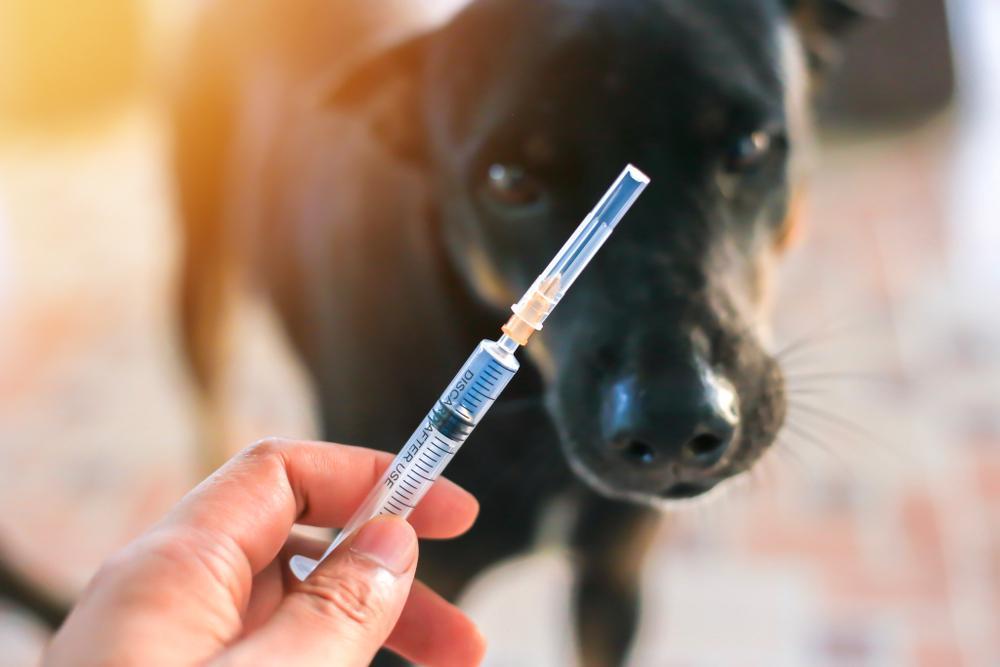Immunity is no doubt at the forefront of most pet owner’s minds. Everyone wants their pets to live a long and healthy life, so keeping a strong immune system is essential. Here at My Pet Nutritionist, we help many pet owners through their own experiences of disease in their pets, so we thought we would put together this blog on the cornerstones for a strong immune system in your pets.
1. Gut Health
Gut health is key to general health of all species, whether it be human, canine, feline, or even smaller furry pets! Virtually all aspects of health can be improved through good gut heath.
Around 70% of the immune system is found in the gut! Quite a staggering figure, but a very important fact to keep in mind when it comes to our pets’ health.
In an unhealthy gut, the immune system becomes massively impaired, leading to a potential multitude of health issues, including those allergy dogs we so often help here at My Pet Nutritionist.
Many things can damage the gut, including chemical flea and worm treatments, poor diets which are processed and/or high in ingredients containing lectin, contact with household and garden chemicals and much more. It’s imperative to gut health, to feed fresh, and limit the exposure to all toxins!
Using a mucilage herb for those with damaged guts, helps to heal the gut; these include slippery elm, marshmallow root, and deglycyrrhised liquorice. Teaming these with a probiotic allows the gut to flourish, as a damaged gut will leak the good bacteria which forms a large part of the immune system.
2. Methylation
DNA Methylation is a very important chemical process within the body. This process includes the chemical modification of DNA during replication of cells. Gene expression can be altered through methylation too.
So, why is this process an important part of keeping the immune system strong?
Various malignant cells, including those for lymphoid cells (produces immune cells B, T and NK) and myeloid cells (related health issues, such as Mast Cells) replicate through a process called hematopoiesis, making these cells ‘hematopoietic stem cells’ (HSCs). Myeloid cells are not ones we want replicating in the body, as they can lead to various types of tumour. Here’s where the process of Methylation comes in to play! Methylation has the ability to regulate HSC differentiation – in other words, it reduces the risk of the Myeloid cells replicating, and forming tumours, but increases differentiation of lymphoid cells.
For more information on the types of cells involved in immune responses,
read our blog here!
Findings Here
Findings Here
Findings Here
3. Healthy Brain and Endocrine System
The Endocrine System is what keeps the body’s organs in good health, through homeostasis. The endocrine system and immune system used to be thought to work independently from one another, but more recently, it was discovered that the two systems work hand in hand to keep the body healthy, and control infection.
The immune system uses a mixture of immune receptors and cytokines to fight infection, and the endocrine system uses hormones to regulate metabolism in the body’s organs.
As an example, one of the most important regulations aided by both systems, is the metabolism of glucose. Insulin is produced by the endocrine system to regulate glucose levels in the blood, and helps the body to fight infection. Cytokines aid the body during glucose spikes by increasing responsiveness of the peripheral organs to the endocrine system. When the organ becomes more responsive to the signals from the endocrine system, greater amounts of the required hormone can be produced.
The brain produces so many important hormones for health of the body, and to help fight a variety of infections, so it is important to keep the brain healthy and free from inflammation. Supplementing your pet’s diet with plenty of omega 3 is a great way to keep inflammation down.
To read more about the endocrine system, and the importance of hormones,
read our blog here!
Findings Here
Findings Here
4. Circulation and Lymphatics
The lymphatic and circulatory systems are an important part of immunity, and keeping the immune system strong.
The lymphatic system is responsible for draining excess fluid from bodily tissues, removing cellular waste, absorption of fat soluble vitamins from dietary sources, and helping to fight infections.
The circulatory system works with the lymphatic system to transport the cellular waste and excess fluid around the body, and away from the relative organs. The interstitial fluid (found between tissues) is what provides the body’s cells with important nutrients, and a way of removing any waste from the cells.
The lymphatic system acts as a taxi for antigens and antigen-presenting cells to transport them through the body to places of infection. This enables the antigens to fight the infection in question, and expel waste.
Findings Here
Findings Here
5. Detoxification
Finally, detoxification is essential for immune health. The body is exposed to a host of toxins, just by going through daily life. We live, generally, in a very toxic world, so detoxifying the body is essential.
Detoxification aids methylation, which as discussed above, is a very important process for a strong immune system.
Heavy metals can be picked up and consumed very easily in our pets – traces can be found in food, and heavy metals are also in abundance in vaccinations. Those who have received vaccinations during their lives, whether only one has been given at an appropriate age as a puppy, or they’re given regularly (if given regularly, over vaccination occurs, making the risk of vaccinosis higher;
read more here) the likelihood that your pet has heavy metals in the bloodstream is high. Heavy metals disrupt metabolic functions in vital organs, as well as reducing the ability to efficiently absorb vitamins and minerals from dietary sources.
Detoxification can be achieved through feeding a fresh, preferably organic diet, minimising exposure to environmental and veterinary toxins, occasionally offering Epsom salt baths, supplementing the diet with milk thistle (this should be ‘pulsed’ not given long term, and is useful for detoxification of the liver), and by giving probiotics to aid digestion and absorption of nutrients. One study also suggests Curcumin may be an effective method of detoxification, and is especially notable in cancer cases.
Findings Here
Findings Here
Findings Here
Findings Here
At My Pet Nutritionist, we help owners with various queries, whether it be for basic advise for general longevity, or tailored advice for those suffering with specific health conditions. Book in with one of our team to discuss your query!
Team MPN x










